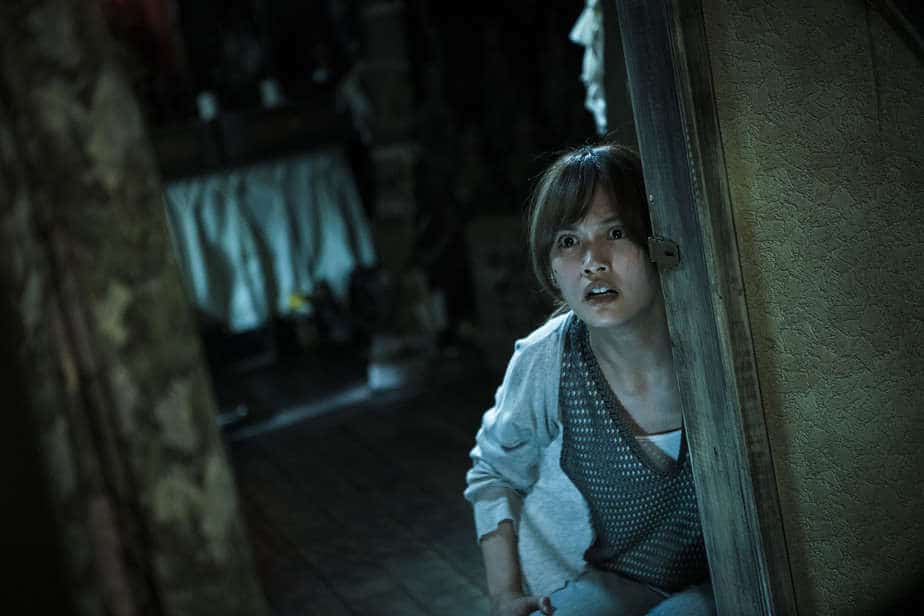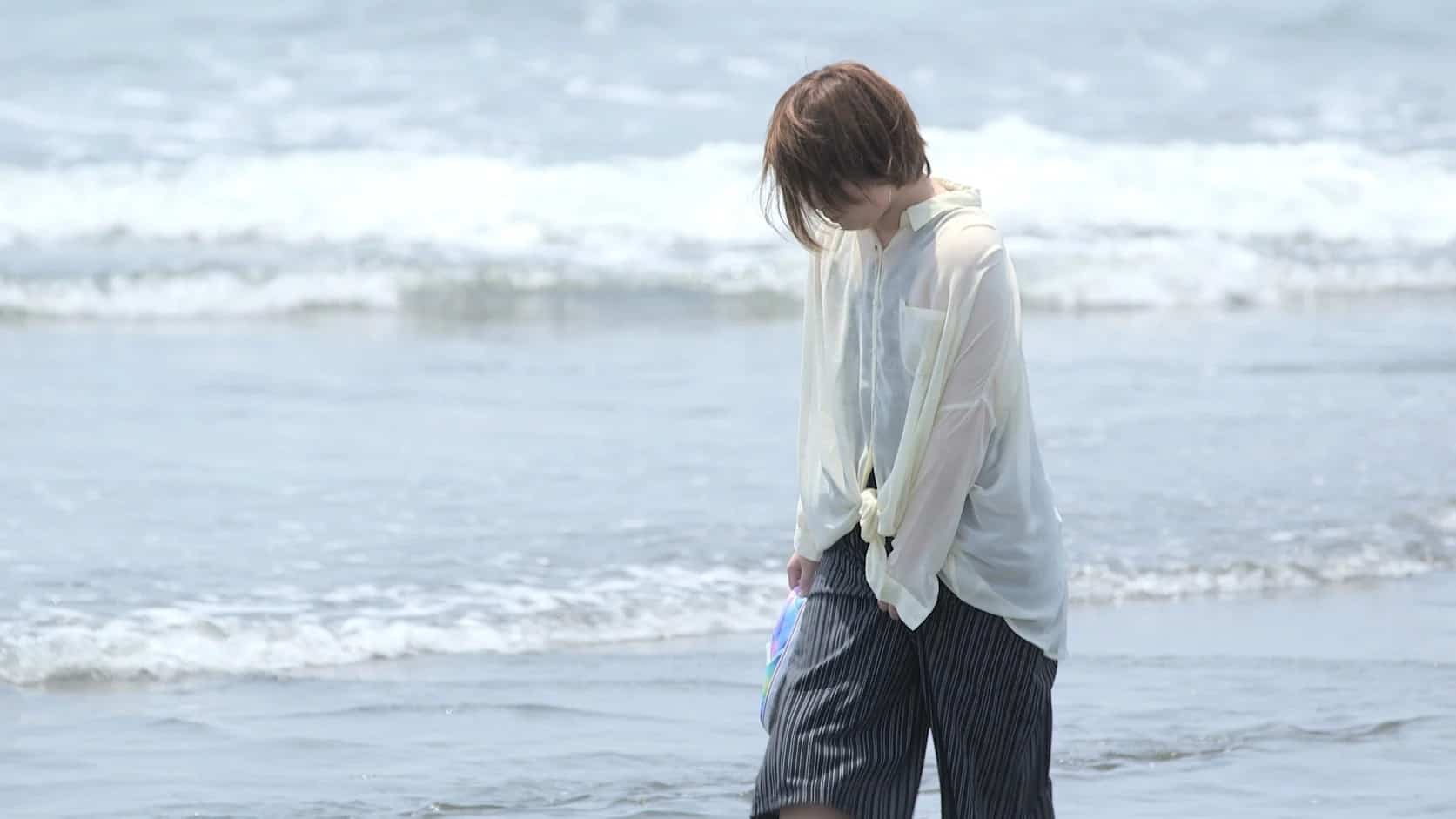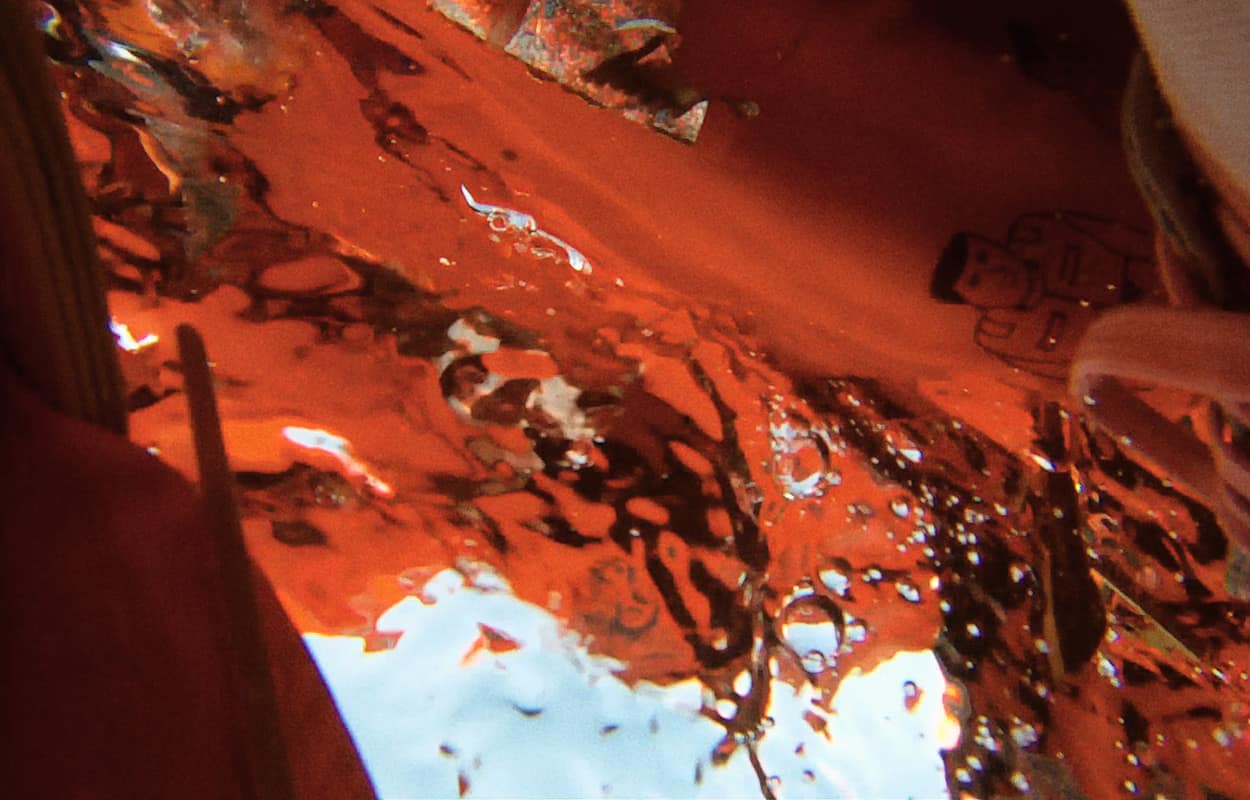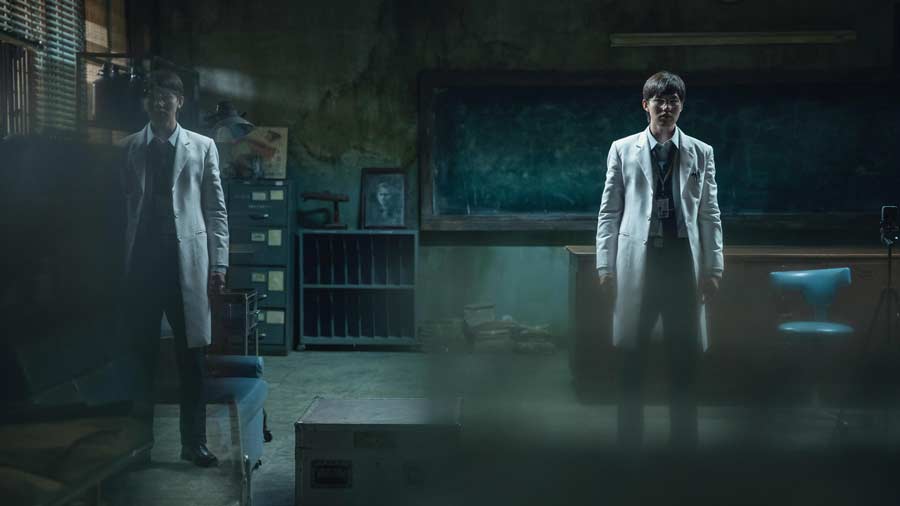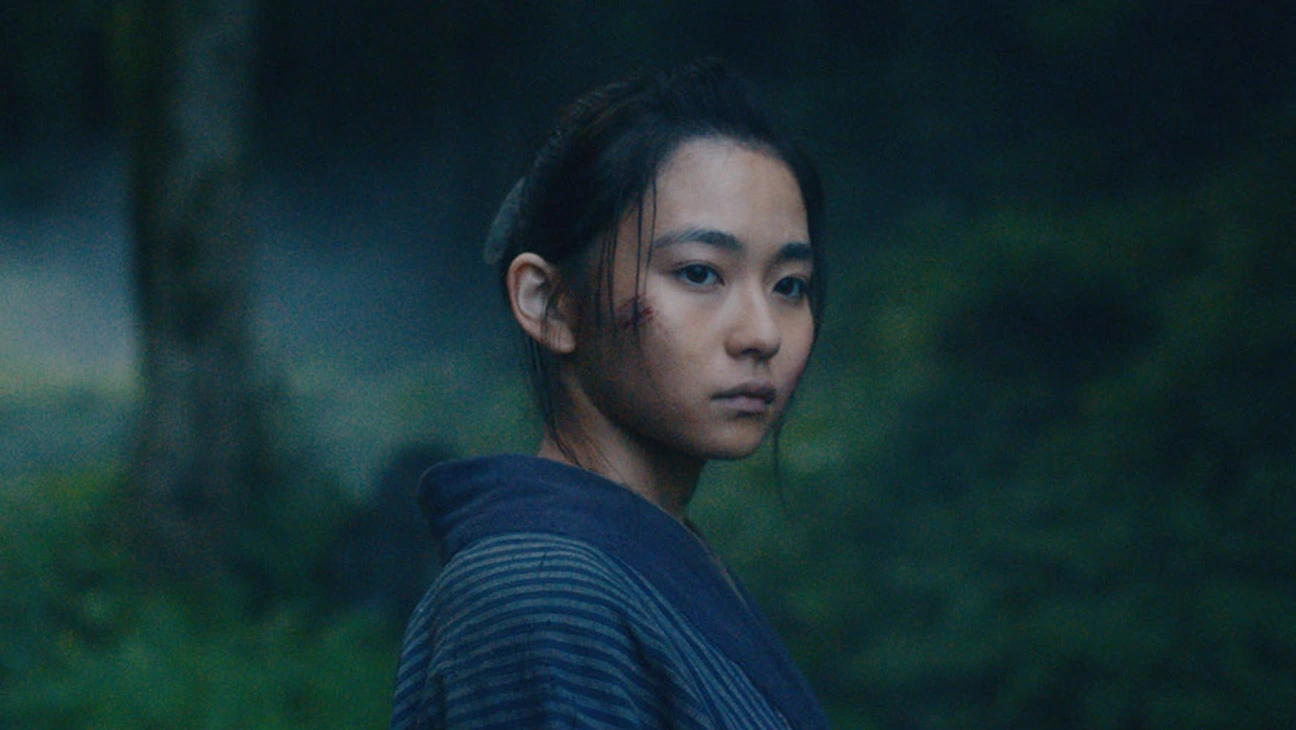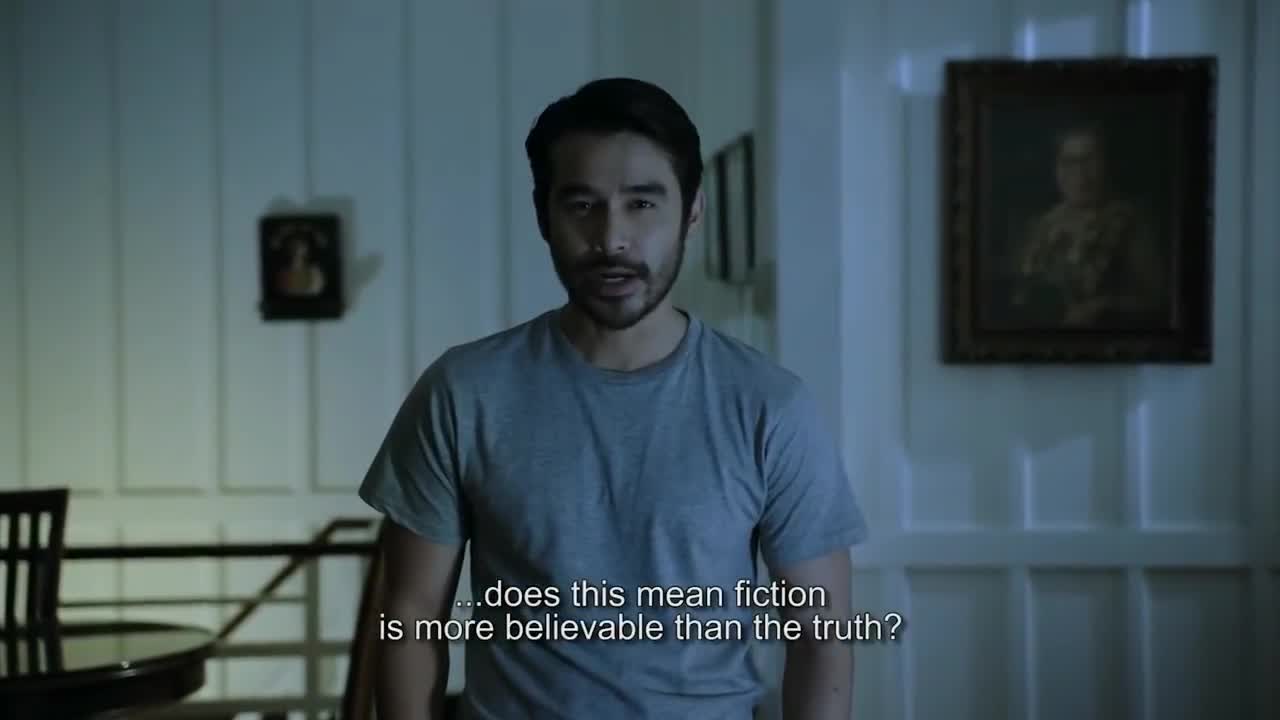Director Cheng Wei-hao, scriptwriter Chien Shih-Keng and part of the previous cast reteamed for the much-anticipated sequel of Taiwanese horror and box-office hit “The Tag-Along”. The 2015 original was based on a popular folk tale about a mysterious little girl in a red dress, caught on camera in 1998 while following a group of hikers on the mountain of Taichung. One member of the group died shortly after that day, sparkling a hysteria about the creepy figure in red. Director Cheng turned the urban legend into his debut feature film in 2014 and into an incredible box office sensation, making “The Tag-Along” the highest-grossing horror film in Taiwan's history. That record has now been surpassed by – guess what – “The Tag-Along 2”.
“The Tag-Along 2” is screening at Taiwan Film Festival UK

The film starts in 2014, where the previous one was left, in that same scary forest that will become the main set up of the new film. Something evil is still very much alive and kicking there and the list of disappeared people keeps growing. Jump to present days, we follow social worker Shu-fen (Taiwanese pop-star Rainie Yang Cheng-lin) in one of her routine visits to Mei-hua (Francesca Kao Hui-chun), a mother who is suspected of acting strangely and maybe even segregating her daughter.
Shu-fen finds something really odd there; Mei-hua is covered in Sutras and the flat is full of amulets and exorcism paraphernalia; moreover she keeps her little daughter locked in a room, to protect her from some sort of evil demon. After sorting out this work situation, single mum Shu-fen must face another problem and this time it's personal. Her teenage daughter, Ya-ting (Ruby Zhan Wan-ru) is pregnant and Shu-fen, driven by her own difficult experience as young mother, urges her to get rid of the baby but when Ya-ting suddenly disappears, guilt floods in. Did Ya-ting maybe assume Shu-fen didn't want her either when she was expecting her?

Frantically investigating the disappearance of her daughetr, Shu-fen notices on a CCTV cam that a little girl in red has led the teenager away, and following the (red) herring, she ends up in an abandoned hospital in the woods where she finds, pregnant and in a state of emotional confusion, Yi-chun (Hsu Wei-ning, from “The Tag-Along”), still looking for her boyfriend and his grandma.
Shu-fen, Mei-hua and Yi-chun are three emotionally displaced women with a problematic relation with motherhood in common (or at least it's what the film suggests) and they will have to join forces to discover more about the vanishing of Ya-ting and the identity of the mysterious girl in red.

The first installment had created an atmospheric and foreboding mood, gathering great inspiration from the myth of the red girl, without revealing much about her. Here we finally learn more about her origin as the story expands and characters develop and this is a satisfying outcome as the curiosity triggered by the first movie is partly fulfilled.
The disturbing realm of demons is fueled by the protagonist torments and guilt, as is often the case in horror movies. The message is certainly aimed to please generic audiences, stressing the importance of love and family bonds; however, some could be put off by the rather arguable morality of the demons. Women are protagonists – in good and bad – of a massive retribution carousel with guilt trip annexed, for not accepting wedding, maternity, or being “bad” mothers, which is an extremely old fashion point of view. In the first Tag-Along, Shen Yi-chun was harshly punished for her defiance of getting married and having children and here the mere idea of an abortion unleashes hell on earth. But – as everybody knows – demons are conservative little creatures so let's believe this is the demons' opinion and not the point of view of the scriptwriter!

Message and morality on a side, “The Tag-Along 2” is surprisingly better than the first one, as the intertwining story-lines are more complex and interesting. Also the addiction of few shamanic rituals, performed by the grandfather of Ya-ting's boyfriend (Wu Nien-hsuan) and the boy's mimic of a holy tiger, contribute to create a truly eerie atmosphere, even more disturbing than the several predictable jump scares scattered here and there.
CGI is not particularly remarkable, maybe this is something to consider improving in case of the (very likely) third caper. Performances are all adequate, with Hsu Wei-ning being particularly intense and ghostly. All in all “The Tag-Along”, despite lacking in originality, uses crowd-pleasing sentimental values to firmly secure its place as a solid piece of pop entertainment.


